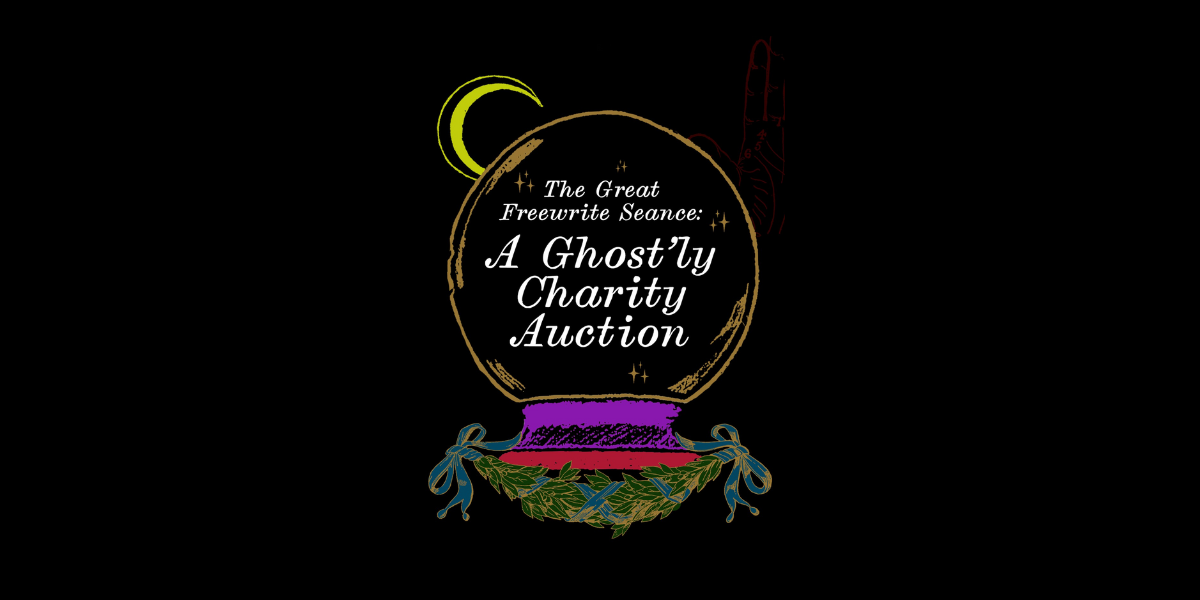
By Will Boechler
We’ve all hit that point in writing our project where you stare at the page, all the hard work and time that you’ve spent crafting your world and your characters, and think, “Where do I go next?” This point can be frustrating, but there are ways around it, all right at your fingertips.
Hello, my name is William Boechler, and I’m a horror author and Freewrite user from Portland, Oregon. Here are five tips that I use when my stories need a little extra oomph to get them going.
1. Trust Your Characters: External vs. Internal Motivation
Sometimes when writing you may find yourself stuck because you don’t want to mess up your character’s characterization, or how they feel, or how they might act in a certain situation or scene. When I have trouble with this I try to look for two things: the external and the internal motivation for each character.
The external motivation depicts the basic goal of the character. In Cormac McCarthy’s hit apocalyptic book, The Road, the story revolves around a father and son moving about this long dead landscape. The goal: the father wants to travel south. That is the father’s external motivation. His internal motivation, however, is something much deeper and more personal and not as easily revealed up front. As the book goes on we realize that this father desperately wants to make sure that his son is safe in this new hellish world. This is his internal motivation. The very core at which his being operates. He wants to go south, but he really wants to make sure that his son is safe.
When I get stuck, I jot down in a notebook what I think my characters’ internal and external motivations may be for the scene, but also the entire work. Then, as I write, I can more clearly see what boundaries the character would push to get what they want.
2. Secondary Scenes
When I’m stuck writing a scene, I try to think of something that informs the character’s actions in the moment, whether that be a past event, trauma, relationship, or something else that I can emotionally tether to the present moment that I’m stuck in. But the key is that it has to be something emotionally connected. The stronger the connection, the stronger it can inform the scene.
Once I find whatever that moment is, I crack it open and explore what else surrounded that moment. What smells, what feelings you can pull. I call these scenes that, though important, will not necessarily make it into the actual project "Secondary Scenes."
The fun part about Secondary Scenes is that since they may not see the light of day, you can write without the worry of having it be critiqued or having to polish it up for a publisher. Those scenes are strictly for you to learn more about your character so that you can push your story forward, so you can be as outlandish with descriptions as you’d like, take up pages with a single detail if you have to, or write your characters’ unfiltered reactive thoughts. Perhaps then, while sifting through the psyche of your character, you can discover something about them that even you didn’t know before.
3. Zooming Outlines
Although there are two types of writers, Planners and Pantsers, this tip can universally apply to both. One of my old screenwriting professors once gave me an exercise to write out the story that we were planning on three different levels of closeness:
- One of the entire story as if it was a plot summary, called the Paragraph Outline. Per its namesake, it should be no more than a paragraph or two.
- Then you move one step closer and create the Full Outline, which gives you a better look at breaking the project up into acts. It's more detailed and can span several pages on its own. This outline also allows you to come up with specific beats that you want to hit in your story.
- Lastly, there are the Scene Outlines, the closest of all, which let you break down the purpose of each scene in your story and explore their narrative weight. Ideally, you would have many Scene Outlines, which allows you to also reorganize the pacing of your story on a whim if you feel something doesn’t flow properly.
Using these outlines has allowed me to keep myself on track when I find I’m writing a scene where nothing really happens. I try to make sure there is a goal in each scene for multiple characters, and it’s easier to organize and change those by scene if you have an outline dedicated to it.
4. Soundscapes and Atmosphere
One of my favorite things to do when I’m stuck writing is take a step back from the story and imagine what the world sounds like around my characters. I ask myself a variety of questions, like:
- Where are they? What is the mood of the place?
- What is the character feeling in that moment? How can I emphasize that with sound?
What I do is find videos on YouTube that are two, maybe even three hours long that simulate the character’s environment in some way, and I loop them. This can be literally anything, from the Twin Peaks Double R Diner with smooth soft jazz and occasional dinner plates clanging, to a large gothic castle’s library in a medieval setting, complete with a fireplace crackling, old book pages rustling under studious fingers, and a distant rumble of thunder.
Then, while that soundscape is playing, I go and find something musical to go along with it. It’s usually a film’s score of some sort that fits the scene’s mood, or a personal playlist for the character specifically (and if you aren’t already making playlists for your characters, I highly recommend it). As the soundscape continues and the music swirls around me, I find it easier to access my character.
5. Watch Your Favorite Films or Read Other Books
The last tip is tried and true—if you’ve hit a wall with your current project, sometimes it’s best to take a step away from it and indulge in something that you like. Whether that be a film that you enjoy, a TV show, or a book you’ve read several times, it’s important to give your project breathing room.
If you’re looking to continuously inspire yourself while you take time away from your project, try watching or reading things in your genre. Of course, watching or reading things outside your genre can prove to be very useful, too. You may be surprised what you can learn from a Western when you’re a horror writer.
--
There you have it! Five tips that help me finish my projects whenever I get stuck. No matter what, it’s important to remember that your project isn’t something that’s going to come easily. Writing is like tending a garden. Fussing over the garden too much will make it fall apart. You have to trust your ability to sit patiently, tending to the garden gently and with care, and slowly, each plant in that garden will bloom into the beautiful flower of a finished draft.
One day, when the time is just right, you can pick those flowers, and you’ll realize you have in your hands a beautiful, vibrant bouquet unlike any ever seen before.
--
 |
Will Boechler is an author from Fargo, North Dakota. He currently lives in Portland, Oregon, pursuing his MFA in Creative Writing and watching the rain fall by his window. He writes on a Freewrite Smart Typewriter with custom black keys. Visit his website at WBoechler.com.
|





























